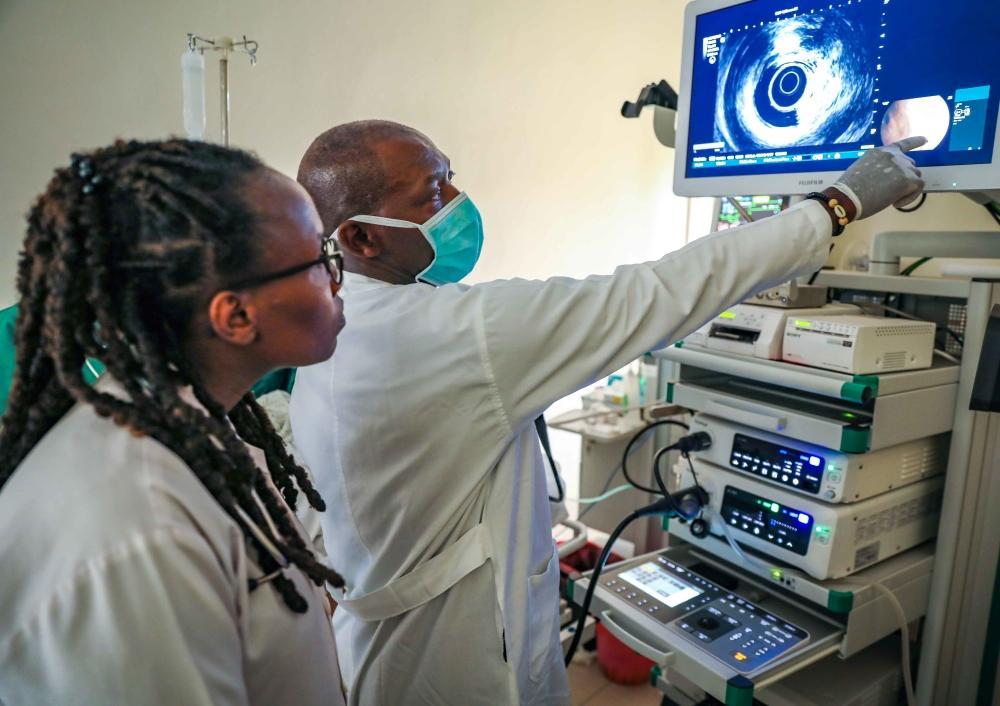Africa-Press – Rwanda. Rwanda has been advancing clinical trials to tackle pressing health challenges, including by launching the world’s first Marburg virus disease clinical trial in October 2024.
The University of Rwanda has also been training healthcare professionals and scientists, particularly those specialising in clinical trials and biomedical research.
Despite this progress, however, experts say challenges remain in building strong, locally driven clinical research capacity.
Structural, time constraints
According to Prof John Marshall, a Canadian intensive care specialist and chair of InFACT, a global network that helps doctors conduct studies and improve care for severely ill patients, clinical trials are essential for improving patient care, but building local research capacity faces major obstacles.
“There are some structural challenges, like funding. Clinicians are very busy providing patient care and often don’t have the time to develop the skills needed to ask research questions,” Marshall said at a workshop on acute care research capacity held in Kigali on Monday, October 6.
Marshall explained that clinical trials are often confused with pharmaceutical companies testing new drugs.
“Typically, when people think of clinical trials in hospitals, they imagine a company bringing in a new drug to test. The model that we represent is very different. About 60 per cent of acute care research comes from networks like ours rather than from companies. We don’t have new drugs,” he said.
Cultural, mindset challenges
Marshall noted the importance of instilling confidence among local clinicians to generate answers themselves.
“It’s a change in mindset. It’s having the comfort and the confidence to say I’m looking after patients, I know how to do this, there are things that I don’t know because my whole community doesn’t know this and it’s my responsibility to try to answer those questions,” he said.
He also stressed that while researchers often assume their chosen outcomes are the most important, patients may have different priorities.
“It’s critical that the care we provide is what patients consider the best care, not just what I, as a doctor, consider best,” Marshall said.
Short-term training models are unsustainable
Prof Jeanine Condo, a medical doctor and CEO of CIIC-HIN, an organisation that trains health professionals and supports health research in Rwanda, said the country has made progress in clinical research.
“However,” she said, “we do workshops with the hospitals, but this is unsustainable because we are training individuals in a limited timeframe.”
Condo said trainings are crucial for positioning Rwanda and Africa to respond to health emergencies while fostering a strong research culture.
“It shows the momentum, positioning clinical researchers to be ready to move forward with research ideas and address clinical gaps. Research is not just for the sake of research; it is meant to improve the clinical care of our patients,” she said.
With the experience of public health emergencies such as COVID-19, Ebola, and Marburg, Condo emphasised that Rwanda must continue to build its prevention and preparedness for future crises.
“Rwanda cannot wait for the next crisis. We must start building robust research systems today,” she said.
Reliance on foreign research
Dr Theogene Twagirumugabe, an anesthesiologist at the University Teaching Hospital of Butare (CHUB) and lecturer at the University of Rwanda, said that medical research in Africa is still evolving, and most treatments currently rely on findings from developed countries.
“Directly applying research from abroad does not always produce the best results,” said Twagirumugabe.
“That’s why it was time for people to start thinking about how to treat patients using research conducted locally. The goal is to show that medical research should not only be conducted in developed countries but also in low-income nations.”
For More News And Analysis About Rwanda Follow Africa-Press






